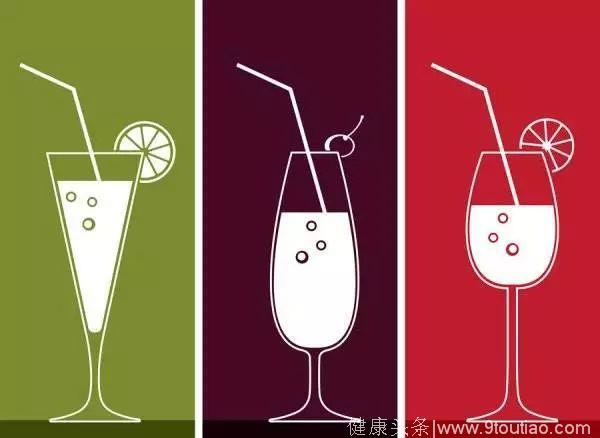
高糖饮料对健康的负面影响可以说是“罄竹难书”,能数得上的包括:肥胖、心血管疾病(CVD)等,然而目前还很少有研究关注高糖饮料与死亡之间的关系。
在2018年3月21日召开的美国心脏协会生活方式和心脏代谢健康科学会议上公布了一项研究结果,证实饮用高糖饮料,包括软饮料和果汁,会增加中年人全因死亡和冠心病死亡风险,对于超重或低收入人群更是如此。与此同时,摄入高糖食物则与死亡风险上升没有明显关联。
“考虑到越来越多的临床证据一致表明,含糖饮料的摄入会带来一系列健康风险,因此临床医生应该询问患者(所有年龄段)平时含糖饮料的摄入情况,如果可能要尽量禁止或者减少摄入。“ 埃默里大学副教授、亚特兰大儿童保健研究负责人Jean Welsh博士如是说。

该项在18000名45岁以上人群中进行的研究数据显示,摄入高糖软饮料和果汁的人群冠心病死亡风险是摄入低糖饮料人群的两倍,在超重和低收入人群中死亡风险则会进一步上升。

原文:The study of nearly 18,000 people aged 45 years and older in the national, longitudinal Reasons for Geographic and Racial Differences in Stroke (REGARDS) study showed that those who consumed the highest amounts of sugar-sweetened beverages and fruit juices had as much as two times the risk of dying of coronary heart disease as those consuming the lowest levels of the sugary beverages. The mortality risk was higher among those who were overweight or had low income.
Meanwhile, no association was seen between consuming the highest amounts of food with high sugar content and mortality, Welsh reported at the American Heart Association's Epidemiology and Prevention | Lifestyle and Cardiometabolic Health Scientific Sessions 2018.

研究结果显示饮用高糖饮料,包括软饮料和果汁,会增加中年人全因死亡和冠心病死亡风险,对于超重或低收入人群更是如此。与此同时,摄入高糖食物则与死亡风险上升没有明显关联。

原文:The new study excluded patients with a history of stroke, CVD, and type 2 diabetes at baseline; participants' added sugar consumption, in grams, was calculated from beverages and foods separately by using self-administered Block 98 food-frequency questionnaires.
Over the mean follow-up period of 6.9 years, there were a total of 1465 all-cause deaths and 279 coronary heart disease deaths among the 17,930 participants.
In dividing the participants into quartiles of the lowest and highest consumers of sugary beverages, including soft drinks, fruit and fruit-flavored drinks, and fruit juices, the authors found that the risk for coronary heart disease was significantly higher in the top quartile, representing a mean of 20 ounces (standard deviation [SD], 7.8; hazard ratio [HR], 2.0; 95% CI, 1.12 - 3.54) than in the lowest category of consumption, a mean of 0.8 ounces (SD, 0.6). The risk for all-cause death was also higher in the top quartile (HR, 1.2; 95% CI, 0.99 - 1.52).
The increased risk for CVD and all-cause mortality with the highest consumption was seen after controlling for factors such as age, body mass index, sex, income, region, smoking, alcohol consumption, and physical activity.
The highest quartile for consumption of sweet foods only (20.4 ounces; SD, 11.3), consisting of desserts, candy, and sweetened breakfast foods and foods with caloric sweeteners added, did not show statistically higher mortality rates compared with the lowest quartile (12.3 ounces; SD, 8.9).
No significant differences were seen in terms of sex or race; however, the increased mortality associated with each additional 12 ounces of sugary beverages consumed was significantly higher for low-income vs high-income participants for all-cause but not coronary heart disease deaths (under vs over $74,000 annual salary: HR, 0.69; 95% CI, 0.50 - 0.96; P = .005).
Those who were overweight (body mass index, 25.0 - 29.9) also had higher all-cause mortality associated with the higher sugary drink consumption (HR, 1.12; 95% CI, 1.02 - 1.22; P = .04), but the coronary heart disease mortality rates were not significantly different (HR, 1.20; 95% CI, 0.98 - 1.46; P = .3).
对于此结果Welsh博士表示:各种假说都可以解释与食物相比,为何高糖饮料带来的死亡风险更高。例如,与食物相比,饮料带来的饱腹感较低,这意味着摄入高糖饮料后人们往往会进食过量的食物。此外,与食物相比,饮料代谢的更快。
原文:Various hypotheses could explain the higher mortality rates associated with sugary drinks compared with foods, Welsh said.
"There is less compensation for calories consumed in beverages (compared to food), meaning that when calories are consumed in beverages, people tend not to consume less foods and they end up overconsuming as a result," she explained.
In addition, metabolism of sugary foods occurs more slowly than that of beverages because of other ingredients, such as fiber, fat, and protein, and in general, the nutrient content in foods had much more variation than with sugary drinks in the study.
"Much more research is needed to understand the role of the many different types of sugar-sweetened foods and how they impact morbidity and mortality risk," Welsh said.
Metabolism may come into play in explaining the higher risk in overweight or obese people, Welsh said.
"It may have to do with how we store the energy and whether it is being burned right away," she explained.
综上:
如果你无法抑制的需要一点“甜蜜的滋味”
去吃吧~
总比喝的好……
翻译:程心
编辑:张丽佳











